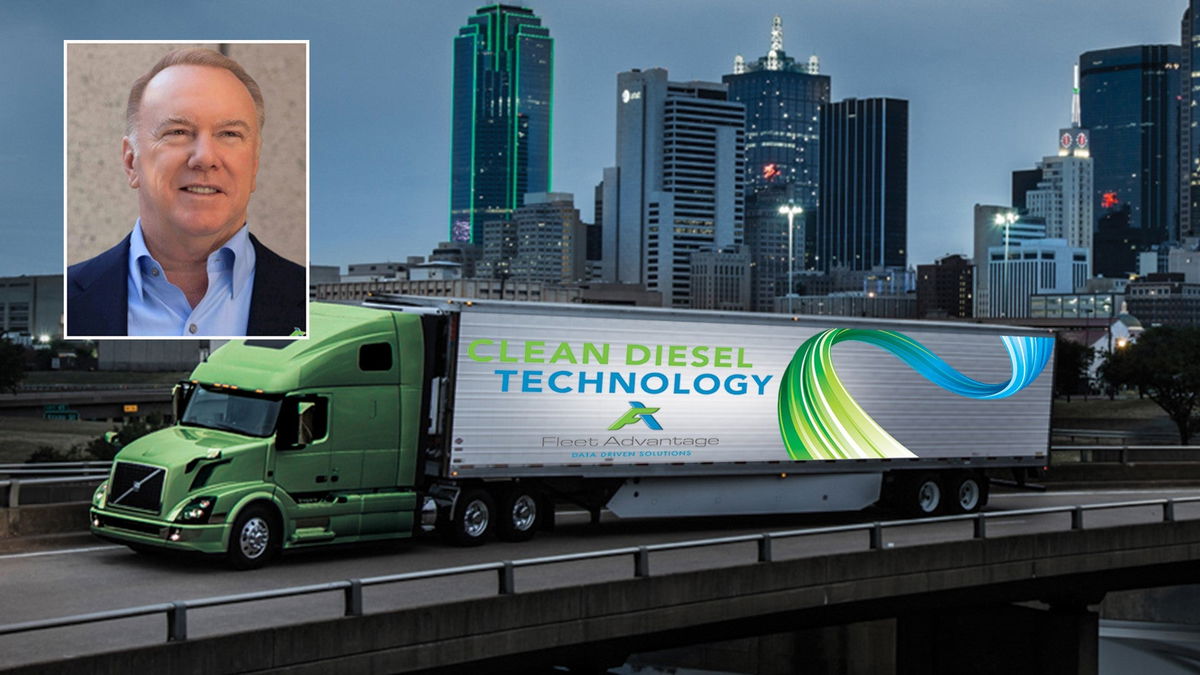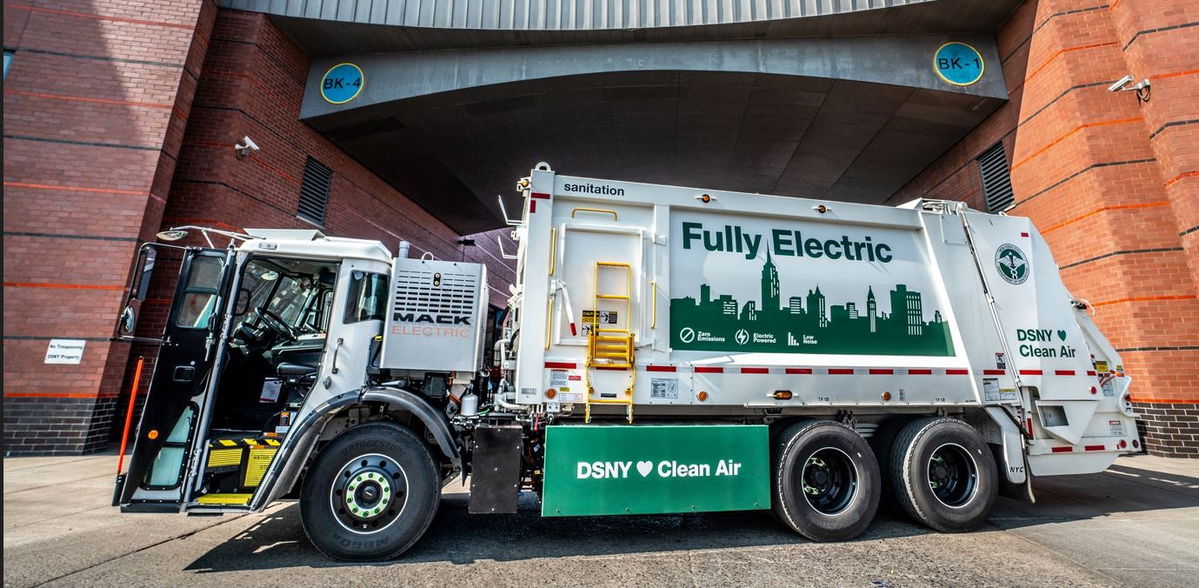As Class 8 autonomous trucking draws nearer, terms like operational design domain, safety case and feature complete show up often in company communications. The first mention of “feature complete” was in May, when former TuSimple CEO and co-founder Xioadi Hou used it on the company’s first-quarter earnings call.
Now, Aurora Innovation pledges feature complete by the end of Q1. The startup in December announced Aurora Driver Beta 5.0, the fifth release of its integrated hardware and Level 4 driving system. It unlocks Aurora Driver’s ability to detect and respond to emergency vehicles like ambulances, fire engines and law enforcement vehicles.
Beta 5.0 also enables an Aurora truck to safely reenter traffic after resolving a system problem that required pulling over to the shoulder. It also makes navigating construction zones with temporary barriers part of the robot-driving program. Aurora Driver plans two more beta upgrades to meet its internal requirements for a safe and reliable driverless truck.
Before launching Aurora Horizon, a subscription-based driver-out autonomous trucking service at the end of 2024, a few more driving complexities must be solved and validated.

‘Path from here to there’
“What we decided to do last year was, look, let’s just be open about the entire path from here to there, exactly the steps that have to be, the milestones that have to be met on various channels,” Sterling Anderson, Aurora co-founder and chief technology officer, told me.
Anderson made it clear that one-off technology achievements touted in news releases don’t often amount to much. In fact, they may confuse more than clarify the state of the industry.
“This kind of demonstration-driven environment where a company could say, ‘Hey, ‘here’s a demonstration of us being driver out and, by the way, it’s going to be a couple more years before we launch.’”
OK, that’s a thinly veiled swipe at TuSimple, which a year ago demonstrated a Class 8 truck with no human in the cab on an 80-mile drive from Tucson, Arizona, to the Phoenix area. The show-and-tell catapulted TuSimple into the lead among competitors. Its recent foibles call that leadership into question. And its 2 ½-year manufacturing partnership with Navistar went kaput.
Aurora deepens its partnerships
Aurora, meanwhile, has deepened nonexclusive partnerships with Volvo Trucks and Paccar Inc., the parent of Kenworth and Peterbilt.
“Since we’ve partnered with Aurora, we’ve been impressed with our progress toward commercializing self-driving trucks and look forward to offering the Aurora Driver to our customers in the years to come,” Paccar CEO Preston Feight said in an endorsement on Aurora’s website.
Given what we know today, “years to come” is probably accurate. Aurora targets commercialization for 2024.
“This feature-complete milestone is a huge one,” Anderson said. “This is our confirmation that the Aurora driver is able to operate in a commercially representative setting and perform all of the functions in nominal conditions or deal with all the off-nominal conditions that we expected to need to deal with on this launch route.”
Short sellers still targeting Nikola
Why do we devote so much space following Nikola Corp.? In part, it is because the electric truck and hydrogen station startup, for all its efforts to portray a steady forward-focused business, every positive announcement appears offset by a financial or reputational challenge.
Short sellers betting Nikola’s share price will fall represent a swarm of financial gnats. Nikola survived a critical wounding a little over two years ago when short-seller Hindenburg Research leveled a host of accusations at founder Trevor Milton.
The 67-page report contained enough truth that General Motors walked away from taking an 11% equity stake. Federal prosecutors used its findings to help build a case that convicted Milton on three counts of fraud. He is scheduled for sentencing Jan. 27.
The “shorts,” as they are called, are still after the Phoenix-based company. According to a report from Cowen Inc., owners of 1-in-5 shares of Nikola bet the company stock price would fall as of Dec. 15.
Direct debt sale
Shares don’t have much room to drop — they closed Thursday at $2.14 — before entering territory that could threaten Nikola’s Nasdaq listing. The stock fell close to its 52-week low of $2.01 on a direct sale of $50 million in senior convertible securities paying 5% interest. Nikola could sell another $75 million in debt before expenses.
It needs the $46.5 million proceeds from the initial sale to keep building trucks and developing hydrogen fueling stations. Nikola, which laid off 100 workers in November, is absorbing a production slowdown over the next year from the August purchase of battery supplier Romeo Power Inc. in an all-stock transaction.
The Securities and Exchange Commission filing and a legal opinion from Pillsbury Winthrop Shaw Pittman LLP supporting it both mention bankruptcy, change of control and other forms of insolvency as possibilities that could impact purchasers.
Separately, former CEO Mark Russell is still buying stock options at $1.06 a share and selling them in cashless transactions — albeit for far less than he expected when he filed his SEC 10b-5 in September. Russell is Nikola’s second-largest shareholder and holds 2.8 million shares. His options are good until February 2029.
Changing of the guard at Fleet Advantage
Brian Holland is succeeding John Flynn as CEO of Fleet Advantage, the provider of truck equipment financing, fleet maintenance and fuel analytics, and life cycle cost management.
Flynn retired Saturday after 40 years in the industry. His first startup in the 1980s designed and implemented a nationwide lease program using highly structured tax-leveraged lease financing for over-the-road semi-trucks and trailers.
Tax-leveraged leases represent the largest segment of net finance leasing for new semi-trucks in the U.S.

Shyft Group acquires SPAC-backed XL Fleet
The Shyft Group Inc. has acquired SPAC-backed startup XL Fleet, which transforms commercial vehicles to run on electric power.
XL was a high-flier when it went public in December 2020 following a merger with Pivotal Investment Corp. II. Those were heady days for special purpose acquisition company mergers. XL traced as high as $28.68. But it found itself caught up in the malaise affecting many transportation SPACs over the last 18 months.
Shyft may hire XL Fleet technical talent, assume a short-term leased facility including equipment in Wixom, Michigan, and support completion of a pilot development agreement XL has with the Department of Defense.

Best of the rest …
NHTSA recall counts
The National Highway Traffic Safety Administration has added up safety recall campaigns for 2022. Two truck makers — Daimler Truck North America at No. 3 with 42 recalls and Navistar International Inc. at No. 9 with 22 recalls — made the Top 10 list that Ford Motor Co. led with 67 recalls.

Watch for falling mirrors
Speaking of recalls, Peterbilt is looking for a small number of 2,564 Model 579 trucks from the 2022-2023 model years in which molded hood mirrors may experience a pivot joint failure and potentially fall off a moving truck. The debris could increase the risk of a crash. Peterbilt has received 58 warranty claims out of 28,734 mirrors built — a 2/10ths of 1% of failure rate. The NHTSA recall number is 22V-940.
No go in snow
Mack Trucks sold seven battery-powered refuse trucks to New York City. But the Department of Sanitation found the LR Electric truck doesn’t measure up to diesel-powered garbage trucks that double as snowplows.
“We found that they could not plow the snow effectively — they basically conked out after four hours. We need them to go 12 hours,” Sanitation Commissioner Jessica Tisch told the City Council last month, according to the Gothamist.

That’s it for this week. Thanks for reading. Subscribe here to receive Truck Tech in your email on Fridays and tune in to Truck Tech on FreightWavesTV Wednesdays at 4 p.m. EST. Next week’s guest is Rebecca Brewster, president of the American Transportation Research Institute.
Alan
